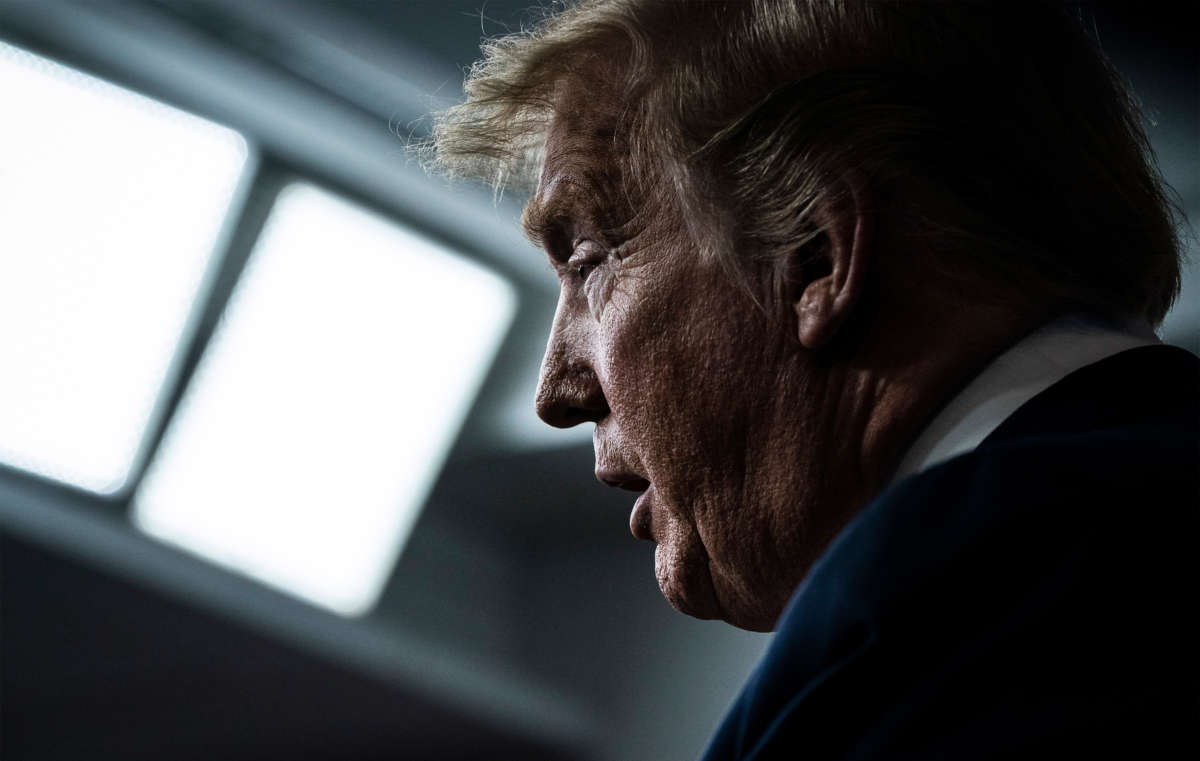The United States Supreme Court heard two different cases on a single matter: who may (or may not) have the legal right to access President Donald Trump’s financial and tax records.
The two cases involve investigations at the Congressional level as well as within the state Trump once called his home, New York.
The District Attorney from Manhattan, Cyrus Vance Jr., is seeking to obtain financial statements from Mazars USA, an accounting firm used by Trump in the past, in order to ascertain whether the president acted improperly in allegedly disbursing hush-money payments to two women, adult film star Stormy Daniels and former Playboy Playmate Karen McDougal, in exchange for their silence prior to and during the 2016 presidential campaign.
Meanwhile, in Congress, House committee heads had sought to subpoena records from Deutsche Bank and Capital One, to view tax and financial records in order to help them in oversight matters.
Trump’s legal teams in both cases are arguing that neither the Manhattan DA nor Congress has the legal right to demand such documents, even though past presidents (such as Richard Nixon with Watergate and Bill Clinton in a sexual harassment lawsuit against him) have had to respond to such legal requests.
On the congressional matter, Trump’s lawyer Patrick Strawbridge was adamant in describing Democrats’ subpoena orders as political rather than for practical purposes.
“These subpoenas are overreaching. They’re an obvious distraction,” he said.
Conservative stalwarts on the bench, like Justice Clarence Thomas, seemed willing to buy into Trump’s lawyers’ arguments, that multiple subpoenas were detrimental to presidents being able to carry out the functions of their jobs.
“At some point, there’s a straw that breaks the camel’s back. At some point, it debilitates the president,” Thomas said.
But other justices appeared to be divided on the matter, with some conservatives on the bench even voicing skepticism over the arguments Trump’s lawyers were making.
Chief Justice John Roberts seemed highly concerned over the High Court overstepping its bounds in a legislative matter, and asked whether it was right for justices to probe “the mental processes” of lawmakers in Congress.
“Should members of House committees be subject to cross-examination on why you were really seeking the documents?” he asked aloud.
Justice Brett Kavanaugh, a Trump appointee, seemed to want to find a balance on the topic.
“How can we both protect the House’s interest in obtaining information it needs to legislate, but also protect the presidency?”
Justice Stephen Breyer, a liberal bloc justice of the Court, also worried about future presidencies dealing with congressional committees possibly using subpoena powers for political reasons.
“What I hold today will also apply to a future Senator McCarthy asking a future Franklin Roosevelt or Harry Truman exactly the same questions. That bothers me,” Breyer said.
Other liberal justice bloc members said it was difficult to see a difference between Trump’s arguments and failed arguments of the past.
“How do you distinguish, say, Whitewater, when President Clinton’s personal records were subpoenaed from his accountant, or even Hillary Clinton’s law firm billing records were subpoenaed?” Justice Ruth Bader Ginsburg asked.
Even with the thinking of the justices somewhat understood, the final outcome of the cases before the Court on Tuesday could not be ascertained or predicted by most legal experts. Indeed, it’s possible that a mixed outcome could result, in spite of precedents set by rulings during the Nixon and Clinton eras, or that a decision from the Supreme Court could send the matter back to lower courts to uncover more facts, before possibly returning to the justices down the road.
Press freedom is under attack
As Trump cracks down on political speech, independent media is increasingly necessary.
Truthout produces reporting you won’t see in the mainstream: journalism from the frontlines of global conflict, interviews with grassroots movement leaders, high-quality legal analysis and more.
Our work is possible thanks to reader support. Help Truthout catalyze change and social justice — make a tax-deductible monthly or one-time donation today.
